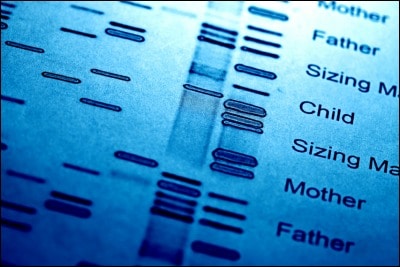

The rules for establishment of paternity vary greatly in Virginia depending on whether a child is born to a married or unmarried mother.
A child born to a married woman in Virginia is presumed to be the child of her husband, so long as they were married for the ten months preceding the birth of the child. The husband is the “presumptive father” of the child, with the same responsibility for child support as a “legal father” (one who has been proven to be the father of a child).
However, the presumption of paternity in Virginia is rebuttable. In other words, the husband has the opportunity to prove that he is not the father despite the fact that he was married to the mother at the time of birth.
There are many ways to rebut the presumption of paternity. Perhaps the easiest and most certain way is to perform genetic paternity testing. In this age of do-it-yourself paternity testing kits, it is worth noting that the Virginia Code technically allows for the results of any genetic test, including a blood test administered at home, to be admitted into evidence—but only where very specific requirements have been met. Those requirements are that:
Due to the stringency of those requirements, in most cases it is simply easier to ask the court to order the genetic testing.
Unmarried parents in Virginia must prove paternity by clear and convincing evidence, which is a fairly high standard. Paternity of unmarried fathers may be proven by genetic testing, or by any of the following:
Unfortunately, in some situations genetic testing proves that a child is not that of a man who believed the child to be his. Many times, the man finds this out after he has paid child support. If a court or administrative (DCSE) order for child support has been entered, then the man must continue to pay support until another order terminating support is entered. Child support is for the benefit of the child, and therefore may only be modified by operation of law.
Where a child support order is terminated due to the disestablishment of paternity, the payor should not expect to be reimbursed for all the payments he made during the time that he believed himself to be the father. Virginia law only allows the court to eliminate child support retroactive to the date the payor filed an action to terminate his support obligation. The court has no authority to order reimbursement of child support payments made before that date.
You may recall a very recent Michigan case where a man was ordered to pay more than $30,000 in child support arrears for a child that is not his. Although that case was in another state, it should illustrate the importance of presumptive fathers in Virginia handling these matters as quickly as possible.
If you are seeking to establish or disestablish paternity in Virginia, be sure to consult with an experienced family lawyer to ensure that the right steps are taken for the benefit of the child, to protect your parental rights and/or ensure that you are not subject to a child support order for a child whose paternity has yet to be established.
The attorneys at Livesay & Myers, P.C. represent fathers and mothers in paternity, support and other family law cases across Northern Virginia. Contact us to schedule a consultation with one of our experienced family lawyers in Fairfax, Ashburn, Manassas or Fredericksburg today.
Livesay & Myers, P.C.
11325 Random Hills Road #100
Fairfax, VA 22030